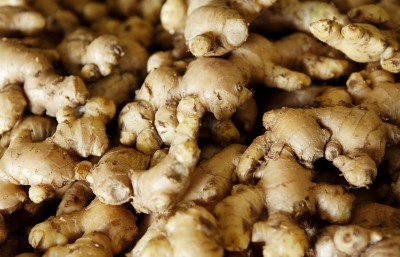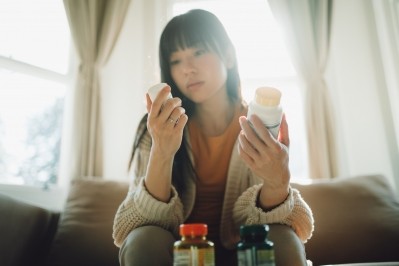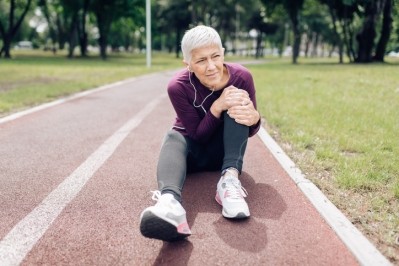Herbal extract may provide menopausal symptom relief in menopausal women: RCT

The study, published in the Journal of Reproductive Medicine, Gynecology & Obstetrics, showed 12 weeks of EstroG-100 had positive impacts on primary and secondary outcome measures.
Menopause
According to the World Health Organization (WHO), menopause is one point in a continuum of life stages for women and marks the end of their reproductive years. The loss of ovarian follicular function in women usually occurs between the ages of 45 and 55 years, as a natural part of biological aging.
Perimenopause means "around menopause" and refers to the time during which the female body makes the natural transition to menopause. This transitional phase begins with changes in the length of time between periods and may last for 4 to 15 years.
Hormonal changes associated with perimenopause and menopause can affect physical, emotional, mental, and social well-being. Associated symptoms vary substantially from person to person and can last for several years. Changes in the regularity and flow of the menstrual cycle, hot flashes, night sweats, vaginal dryness, pain during sexual intercourse, incontinence, difficulty sleeping, and changes in mood, depression, and/or anxiety, are common symptoms experienced.
Opportunity
Currently, hormone replacement therapy is the first line of treatment for menopausal symptoms. As the Women’s Health Initiative’s (WHI) randomized clinical trials suggests, health risks associated with hormone replacement therapy have led to more women seeking pharmaceutical alternatives such as plant-based products and dietary supplements. This growing demand for safe and effective menopausal products highlights a commercial opportunity for manufactures, brands and retailers.
The menopausal market size is expected to grow at a compound annual growth rate (CAGR) of 5.29% from 2022 to 2030, according to Grand View Research, with the North American Menopause Society estimating there will be one billion menopausal women globally by 2025 .
Ingredients
To provide safe and effective treatment alternatives for women during perimenopause, menopause and postmenopause, Dr. Jae Kim created EstroG-100, a patented, hormone-free, herbal formulation.
Extracts from the plants Cynanchum wilfordii Hemsley (32.5%), Phlomis umbrosa Turczaninow (32.5%), and Angelica gigas Nakai (35%), were chosen because of their long traditional use in Korean folk medicine to relieve symptoms associated with menopause.
Cynanchum wilfordii Hemsley is a climbing vine used in traditional Asian folk medicine to improve blood circulation and restore vigor after illness or pregnancy. Studies have demonstrated extracts of C. wilfordii attenuated various menopausal symptoms including hot flashes, insomnia, night sweats and vaginal dryness without any influence on female hormone levels.
Angelica gigas Nakai has been used to support menstrual irregularities, menstrual pain, PMS and overall gynecological health. It also has shown positive effects on memory, insomnia and anxiety.
Phlomis umbrosa Turczaninow is a sage-like herb with anti-inflammatory and analgesic properties and has been used to strengthen muscles and bones.
EstroG-100 was acquired by PhytoLife Nutrition GmbH, an internationally operating pharmaceutical company based in Berlin. The ingredient has been shown in three prospective, randomized, double-blind and placebo-controlled clinical studies to be effective on menopausal symptoms without the typical side effects of hormone therapy such as weight gain or organ, circulatory or metabolic changes, and no estrogenic or phytoestrogenic effect.
Study design
Just over 100 women aged 40-70 years with a Kupperman Menopausal Index (KMI) ≥ 20 were randomized to receive either EstroG-100 (treatment group) or placebo (control group). KMI is an international standard for assessing the degree and characteristics of menopausal discomfort. The modified KMI consists of 12 items in six domains: vasomotor disorders, urinary symptoms, systemic neurological symptoms, motor symptoms, digestive symptoms and systemic symptoms.
Participants received one pill twice a day of EstroG-100, totaling 514 mg of powdered extract, or placebo for 12 weeks.
The primary and secondary efficacy endpoints were the change in the total modified KMI scores and changes in the 12 items of the modified KMI scores, respectively. The degree of symptom improvement in both groups was analyzed and compared at weeks 4 and 12 to determine whether there were statistically significant differences.
Results
The primary efficacy endpoint change in total modified KMI scores significantly improved after 12-weeks of EstroG-100 compared with placebo. Of the secondary efficacy endpoints, paresthesia, nervousness, melancholia, vertigo, fatigue, arthralgia and myalgia and formication also improved significantly with treatment. There was no significant change observed in serum E2 and FSH levels, endometrial thickness or Body Mass Index (BMI) in either group.
Source: Journal of Reproductive Medicine, Gynecology & Obstetrics
September 2022 doi: https://10.24966/RMGO-2574/100106
“A 12-Week, Multi-Center, Double-Blind, Randomized, Placebo-Controlled Clinical Trial for the Evaluation of the Efficacy and Safety of the Herbal Extract (EstroG-100) on Menopausal Symptoms.”
Authors: T. Kim et al.
















